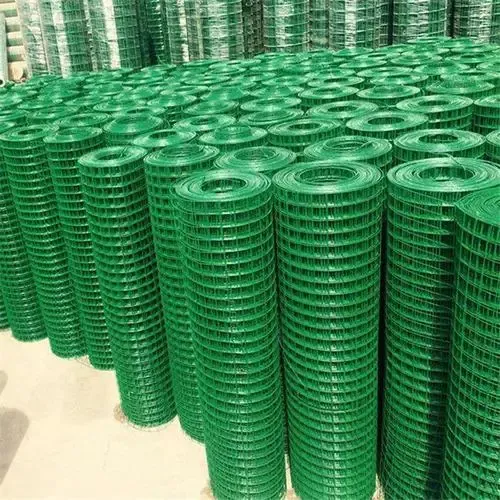Ноя . 09, 2024 03:45 Back to list
Design and Construction of Rock Cage Retaining Walls for Erosion Control and Soil Stability
Rock Cage Retaining Walls A Sustainable Solution for Erosion Control
Rock cage retaining walls, commonly known as gabion walls, have gained popularity in civil engineering and landscaping due to their effectiveness and aesthetic appeal. These structures consist of wire mesh cages filled with stones or rocks, designed to hold back soil and prevent erosion. In recent years, they have emerged as a sustainable alternative to conventional retaining walls, offering numerous environmental and structural benefits.
The Design and Functionality of Rock Cage Retaining Walls
Gabion walls typically feature a modular design, allowing for flexibility in size and shape. The cages are usually made of steel wire, coated for durability and corrosion resistance, which ensures longevity even in adverse weather conditions. The rocks used for filling the cages can vary in size, composition, and type, depending on the local availability of materials and the specific engineering requirements of the project.
The primary function of rock cage retaining walls is to provide lateral support for soil and prevent it from sliding or eroding, particularly on steep slopes. These walls absorb and dissipate energy from water runoff, reducing the pressure exerted on the soil that often leads to erosion. The open nature of gabions allows water to flow through, thus mitigating hydrostatic pressure within the wall, a common issue with traditional solid retaining walls.
Benefits of Rock Cage Retaining Walls
1. Environmental Impact One of the significant advantages of rock cage retaining walls is their minimal environmental footprint. The use of natural materials reduces the need for concrete or other artificial substances, making them a more eco-friendly choice. Additionally, the permeable nature of gabions promotes natural drainage and reduces the risk of flooding.
2. Cost-Effectiveness Rock cage walls are often less expensive to construct than traditional retaining walls. The materials required are usually locally sourced, minimizing transportation costs. Moreover, their straightforward construction process requires less specialized labor, which can further reduce overall project costs.
rock cage retaining wall

3. Versatility Gabion walls can be adapted for various applications, from controlling erosion in landscaping projects to providing structural support in civil engineering. Their modularity allows for customization in design, accommodating different heights and widths to meet specific project needs.
4. Aesthetic Appeal Beyond their structural benefits, rock cage retaining walls can enhance the visual appeal of an area. The natural stone used in gabions blends seamlessly into the landscape, providing an organic look that can complement gardens, parks, and public spaces. This aesthetic versatility makes them suitable for urban and rural applications alike.
5. Ecological Benefits The gaps in gabion walls can serve as habitats for various flora and fauna, promoting biodiversity. Plantings can also be integrated into the design, allowing vegetation to grow through the mesh. This not only stabilizes the wall but contributes to the ecological health of the area.
Construction Considerations
While there are many advantages to using rock cage retaining walls, certain factors must be considered during construction. Proper site assessment is crucial to determine soil composition, drainage patterns, and the potential for erosion. Engineers should also evaluate the height of the wall, as taller structures may require additional reinforcement.
Moreover, regular maintenance is important to ensure the longevity of gabion walls. Over time, rocks may settle, and the wire mesh may require inspections for rust or breakage. Addressing these issues promptly can extend the lifespan of the structure and maintain its aesthetic appeal.
Conclusion
Rock cage retaining walls offer a sustainable, cost-effective, and visually appealing solution for erosion control and soil retention. As environmental considerations become increasingly important in construction and landscaping, the benefits of gabion walls make them an ideal choice for a variety of applications. Their adaptability, coupled with their ability to blend into the surrounding environment, positions rock cage retaining walls as a contemporary solution for modern engineering challenges. Whether you are an engineer, landscape architect, or homeowner, considering the use of gabion walls can lead to enhanced stability, ecological benefits, and an aesthetically pleasing landscape.
-
Weather Resistance Properties of Quality Roofing Nails
NewsAug.01,2025
-
How Galvanised Iron Mesh Resists Corrosion in Harsh Environments
NewsAug.01,2025
-
Creative Landscaping Uses for PVC Coated Wire Mesh Panels
NewsAug.01,2025
-
Common Wire Nail Dimensions and Their Specific Applications
NewsAug.01,2025
-
Choosing the Right Welded Wire Sheets for Agricultural Fencing
NewsAug.01,2025
-
Anti - Climbing Features of Razor Wire Barriers
NewsAug.01,2025









